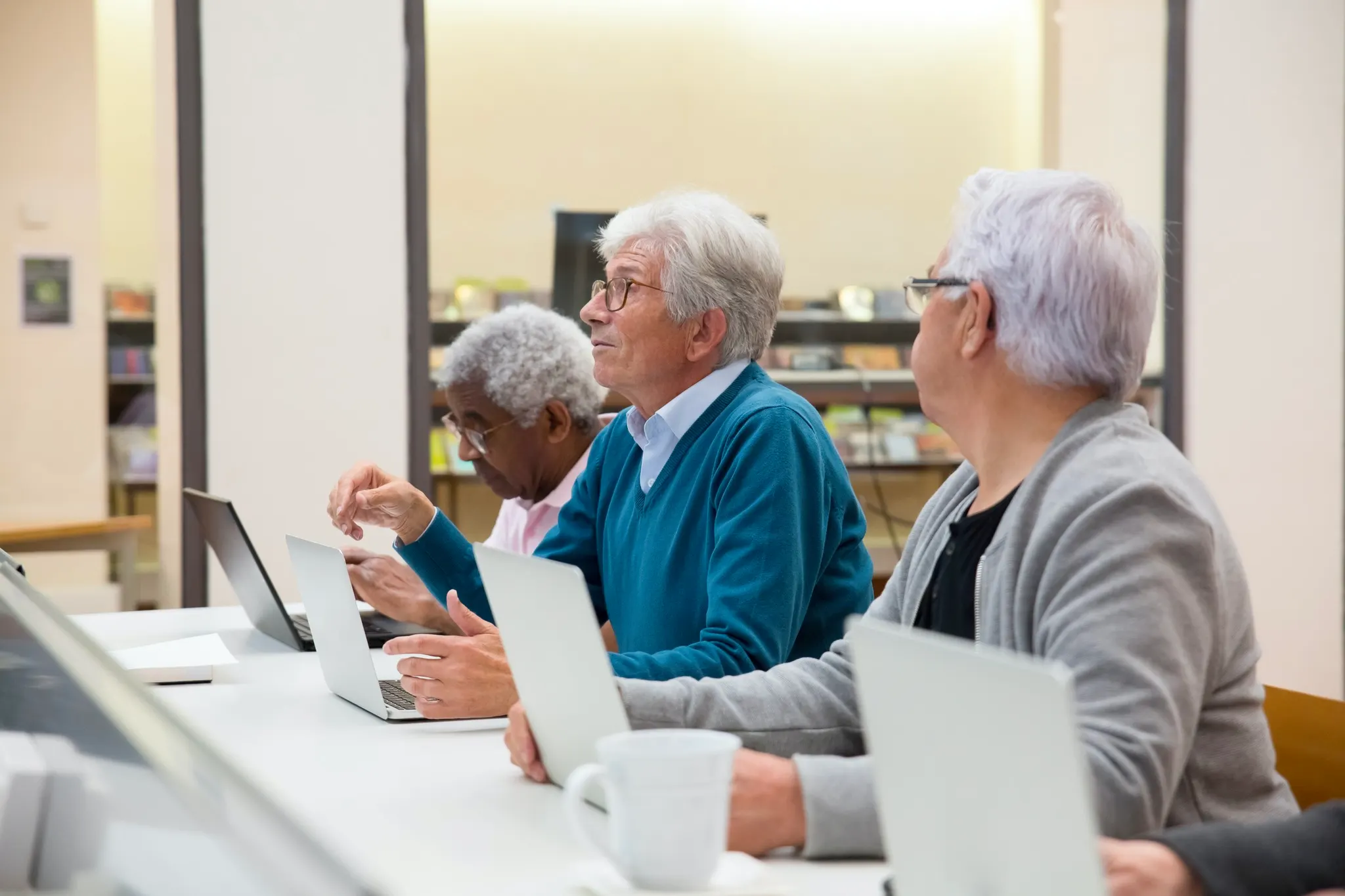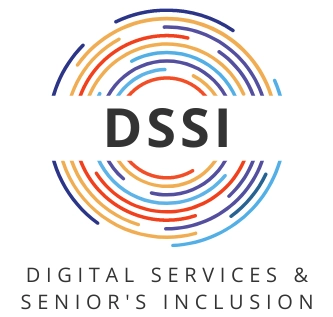About Us
About Us
The DSSI project has a consortium composed of 6 organisations from 5 different countries.
The DSSI project aims to promote the rights of older people (low-skilled, living in remote areas, with mobility difficulties, migrants, etc.) to access information and lifelong learning. Therefore, the project will enable them to enjoy the right to participate in everyday society as independent citizens, through digitally active ageing.
This is facilitated by the use of library networks, as their role is starting to evolve into a hub for digital information and services, due to the accelerated digital transformation of the post-COVID era.

About the project

Aim of the DSSI project
The DSSI program aims to foster the rights of individuals of older age (under skilled, living in remote areas, phasing mobility difficulties, migrants, etc.) to access information and lifelong learning and enjoy the right of participation in everyday society as independent citizens, through digitally active ageing.
The project is using the wide network of libraries as a digital information hub where senior citizens can acquire basic digital skills and apply their knowledge on searching and accessing the fantastic range of libraries digital services on health and wellbeing, lifelong learning, cultural and social connectivity and finally e-commerce and e-governance.
The following priorities of adult education will be realized with the implementation of the DSSI project:
- Inclusion and diversity in all fields of education, training, youth and sport.
- Addressing digital transformation through development of digital readiness, resilience and capacity.
- Developing forward-looking learning centres.
DSSI objectives & target groups
DSSI aims to support the improvement of digital education of senior learners in order to meet the challenges arising from the external shocks of the COVID-19 crisis. Therefore, DSSI aims to develop an open platform for a curriculum of free online training on how to use the internet and access digitallibrary and public services for remote users of an older age, that are digitally under skilled and feel left out.
DSSI will set the basis for developing high-quality services for all users of library and information services as well as providing support information in order to reduce inequalities within and among countries and tackle discrimination arising from exclusion due to age.
In compliance with the objectives set by the European Commission on Council Recommendation on ADULT Education andTraining (ADU) (2020), DSSI aims to:
- Support the improvement of digital education in order to meet the challenges arising from the external shocks of theCOVID-19 crisis in the shorter term
- Enhance digital andragogy and expertise for adult trainers and digital literacy
- Foster trainers capacity to use digital tools and content, test and promote blended learning
- Support older people to develop the digital skills needed to take full advantage of the opportunities provided by the greenand digital transitions
- Support adult learning across all environments for social inclusion, active citizenship and personal development beyondworking life
DSSI targets older people with low digital skills who are unable to enjoy the benefits of the digital information age and educators who need adequate skills to teach them in flexible environments.
Thus, the main target group of the project is older people who have difficulties in accessing information and learning in formal learning environments due to mobility problems, rural or remote location, migration, or because they have not received any education or training for a long time. In addition, staff of community organisations (home care, day centres, nursing homes, etc.), volunteers or even younger family members will also have the opportunity to train to become non-formal adult educators.
In addition, library staff and adult educators (formal adult education centres, non-formal adult educators working in community support groups, day centres, NGOs, etc.) will participate in the training, provided by this partnership, to help them deliver online courses.
The project's target groups also include national and European networks of libraries, adult education and lifelong learning centres, NGOs, public administration, the primary health sector, policy makers, etc.
